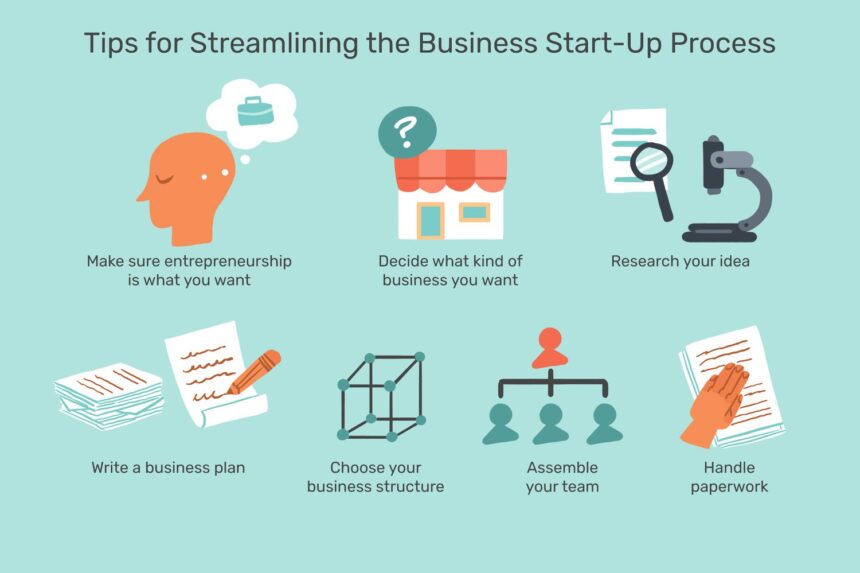A business refers to an organization or entity engaged in commercial, industrial, or professional activities, with the primary goal of earning a profit. Businesses can be of various types, including sole proprietorships, partnerships, corporations, and limited liability companies.
The types of businesses can vary based on the industry, size, and structure of the organization. In general, businesses involve the production, selling, or provision of goods or services to consumers, with the aim of generating revenue and making a profit.
What is business basics?
Business basics generally refer to the fundamental principles and practices that are necessary for running and managing a successful business. This can include things like creating a business plan, developing a marketing strategy, managing finances, hiring and training employees, and providing quality customer service. It’s important to have a solid understanding of these basics if you want to start or grow a business.
How to create a business idea?
Generating a business idea can be an exciting and fulfilling process. Here are some steps you can follow to come up with a business idea:
Identify a problem or a need: Look for a problem or a need that people experience in their daily lives. You can conduct market research to identify potential gaps in the market.
Research the market: Analyze the market trends and competition to understand what is currently available and what opportunities are available.
Brainstorm ideas: Once you have identified a need or a problem, brainstorm ideas that could solve it. Write down all your ideas, no matter how ridiculous they may seem.
Evaluate ideas: After you have brainstormed ideas, evaluate them based on their feasibility, profitability, and potential market demand.
Test the idea: Test your idea by conducting a survey or by running a small pilot to see if there is a genuine interest in your product or service.
Refine the idea: Based on the feedback you receive, refine your idea to make it more compelling and to better serve your target market.
Remember, creating a successful business idea takes time and effort. But with the right mindset, creativity, and perseverance, you can develop a business idea that can transform into a successful venture.
How do I start my startup?
Starting a startup can be a daunting task, but with a well-defined plan, you can make the process smoother. Here are some steps you can follow to start your own startup:
Identify your niche: Identify a niche that you are passionate about and that has potential for growth.
Conduct market research: Conduct thorough market research to identify the opportunities and challenges in your chosen niche. This information can help you better understand your target market and competitors.
Develop a business plan: Develop a comprehensive business plan that outlines your mission, goals, and strategies. This plan should include financial projections and a marketing plan.
Secure funding:Identify the sources of funding you will need to start and grow your business. You can consider options such as venture capitalist, angel investors, or crowdfunding.
Build a team: Build a team of skilled professionals who can help you execute your business plan effectively.
Launch your startup: Launch your startup and start implementing your business plan. Be willing to pivot and adjust your plan along the way as you learn more about your market and your business.
Launching a startup requires hard work, perseverance, and dedication. But with the right mindset, skills, and support, you can successfully launch and grow your own startup.
What are the subjects in business?
The subjects in business can vary depending on the level of education and the specific program or course of study. However, some of the common subjects in business include:
Accounting: This subject focuses on financial information management, including recording, analyzing, and reporting financial transactions.
Finance: This subject covers the management of financial resources, including investment, risk management, and financial planning.
Marketing: This subject covers the development and implementation of marketing strategies, including market research, advertising, and promotion.
Management: This subject covers the principles of managing people, resources, and operations within a business organization.
Economics: This subject covers the principles of macro and microeconomics, including supply and demand, pricing, and market structures.
Entrepreneurship: This subject covers the development of new business ideas, opportunity recognition, and strategic planning for new venture creation.
Operations management: This subject covers the design, implementation, and improvement of operational processes and systems within a business organization.
These subjects provide a broad understanding of the various aspects of business, and can help students develop the skills and knowledge needed to succeed in the world of business.
What is the study of business studies?
Business studies is an academic field that encompasses a wide range of subjects related to the management and operation of companies and organizations. Some of the key areas of study in business studies include finance, accounting, marketing, operations management, human resources management, and organizational behavior. The goal of business studies is to provide students with the knowledge and skills necessary to succeed in various roles within the business world, such as entrepreneurship, management, or marketing.
What is the golden rule in business?
The golden rule in business is a basic principle that is often referred to as the “ethical code” of business. It is based on the idea that you should treat others as you would like to be treated yourself. The golden rule means that you should conduct your business in a fair, honest, and ethical manner, treating your customers, employees, and partners with respect and integrity.
In practical terms, the golden rule means that you should:
- Treat your customers with respect and provide them with high-quality products or services.
- Treat your employees with respect and provide them with fair wages, benefits, and a safe working environment.
- Treat your partners and suppliers with respect and honesty, and fulfill your contractual obligations to them.
- Conduct your business in an environmentally responsible manner, minimizing your impact on the environment.
- Give back to your community by supporting local organizations and charities.
By following the golden rule, businesses can build trust with their stakeholders, create long-term relationships, and foster a positive reputation in the marketplace.
When to start a business?
Starting a business can be a big decision, and it ultimately depends on your goals and circumstances. However, if you have a solid business idea, have done your research and planning, and have the necessary resources and support, then now could be a great time to start a business. It’s important to keep in mind that starting a business takes time, effort, and dedication, so make sure you are prepared for the challenges ahead.
What are the 5 rules of ethics?
There are different sets of ethical rules depending on the context and the profession. However, one of the most commonly recognized sets of ethical rules is the “Five Fundamental Principles of Ethics” which are:
- Respect for autonomy: recognizing the right of people to make their own choices and decisions.
- Beneficence: the obligation to do good and promote the welfare of others.
- Non-maleficence: the duty to do no harm and to prevent harm from occurring.
- Justice: the obligation to be fair and treat people equally, without discrimination.
- Fidelity: the duty to be faithful and keep promises, agreements, and commitments.
These principles provide a framework for ethical decision-making and behavior, and they are widely used in various professional fields, such as medicine, law, and business.






